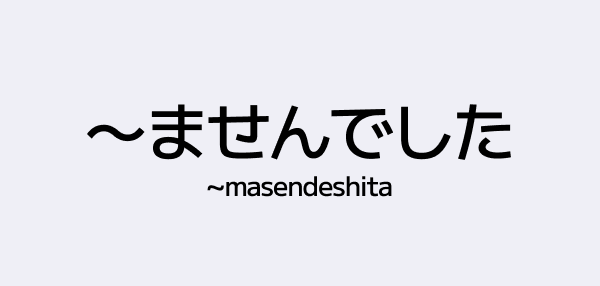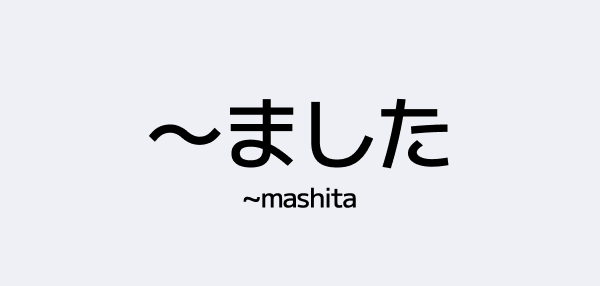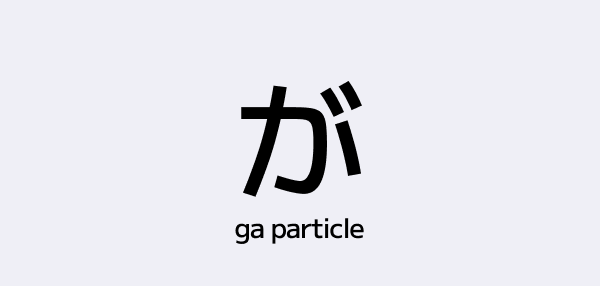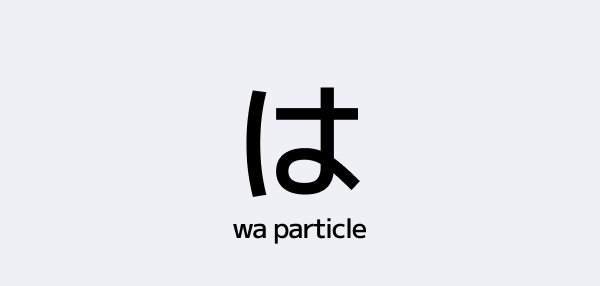~ませんでした (Polite Past Negative Form)

So, you’ve learned how to say what you do (~ます), what you don’t do (~ません), and what you did (~ました). Now it’s time for the final boss of basic polite verbs:
~ませんでした — the past negative polite form.
In other words, how to say “I didn’t do something” politely.
Whether you didn’t study, didn’t go out, or just didn’t feel like doing anything yesterday (we’ve all been there), this form is very common.
What Does ~ませんでしたMean?
「~ませんでした」is the polite way to say you did not do something in the past.
It’s the negative version of ~ました, and the past version of ~ません.
Let’s compare:
- たべます(tabemasu) = I eat
- たべません(tabemasen) = I don’t eat
- たべました(tabemashita) = I ate
- たべませんでした (tabemasen deshita) = I didn’t eat
Just like ~ませんand ~ました, this form is polite and works in most daily situations.
How to Change ~ますto ~ませんでした
It’s easy! If you know how to say ~ませんand ~ました, you already know this.
Just take any ~ますverb and swap ~ますwith ~ませんでした.
Examples:
- のみます→のみませんでした(I didn’t drink)
- いきます→いきませんでした(I didn’t go)
- します→しませんでした(I didn’t do)
- きます→きませんでした(I didn’t come)
That’s it! Same stem, just a longer ending.
How to Conjugate Verbs into ~ませんでした
As always, Japanese verbs fall into 3 types — and all of them follow the same basic rule here:
Get the stem you use for ~ます, then add ~ませんでした.
1. Group 1 Verbs (Godan動詞)
These verbs end inうin their plain form, likeのむorはなす.
Examples:
- のむ→のみませんでした
- いく→いきませんでした
- はなす→はなしませんでした
- よむ→よみませんでした
2. Group 2 Verbs (Ichidan動詞)
These end in ~るwith an “e” or “i” sound before it.
Examples:
- たべる→たべませんでした
- みる→みませんでした
- おきる→おきませんでした
3. Group 3 Verbs (Irregular)
Two rule-breakers:
- する→しませんでした
- くる→きませんでした
Used in:
- しゅくだい をしませんでした。→ I didn’t do my homework.
- ともだち がきませんでした。→ My friend didn’t come.
Everyday Example Sentences
Let’s check out some real-life sentences using ~ませんでした:
きのう、ばんごはんをたべませんでした。
Kinou, bangohan wo tabemasen deshita. → I didn’t eat dinner yesterday. (Snack night 🍫)
でんしゃにのりませんでした。
Densha ni norimasen deshita. → I didn’t ride the train.
ともだちにあいませんでした。
Tomodachi ni aimasen deshita. → I didn’t meet my friend.
にほんごをべんきょうしませんでした。
Nihongo wo benkyou shimasen deshita. → I didn’t study Japanese. (Not judging... 😏)
きのう、うちにいませんでした。
Kinou, uchi ni imasen deshita. → I wasn’t home yesterday.
Practice Time!
Practice 1: Turn into ~ませんでした
Change these ~ますverbs into polite past negative:
のみます→________
いきます→________
べんきょうします→________
ねます→________
きます→________
Answers:
のみませんでした
いきませんでした
べんきょうしませんでした
ねませんでした
きませんでした
Practice 2: Translate It!
Make a full sentence in Japanese using ~ませんでした:
I didn’t eat breakfast.
I didn’t go to school.
I didn’t watch TV.
Answers:
あさごはんをたべませんでした。
がっこうにいきませんでした。
テレビをみませんでした。
Bonus Tip: Usingけっこうです
In real life, if someone offers you something and you want to say “No thanks, I didn’t,” you can use:
- けっこうです → No thank you (politely)
More popular ways of saying this are:
- だいじょうぶです -> It's okay (as in, no thanks)
- いいです -> It's good (as in, no thanks)
We know it doesn't really help that these can also mean the affirmative. Context is everything! But when you see a Hand of Refusal ✋ you know they mean no. Many Japanese people are notoriously vague and want you to read the air...
Now that said, if you’re explaining why, you’ll probably use ~ませんでした:
- コーヒーはのみませんでした。(I didn’t drink coffee.)
- デザートはけっこうです。(I’ll pass on dessert.)
Final Recap
~ませんでした is your go-to form when you want to politely say something didn’t happen.
- It’s the negative version of ~ました
- It’s polite, respectful, and super common
- It works with all verb types — just grab the ~ますstem!
Use it when:
- You want to say what you didn’t do yesterday or last week
- You’re in a formal setting
- You’re explaining something politely (or making excuses 😅)
Related Grammar
 F Rank
F RankThe の (No) Particle
The particle 「の」 connects and clarifies—linking nouns, showing possession, and even turning verbs into concepts. From “my pen” to “eating is fun,” this guide covers all the key uses.
 F Rank
F Rank~ました (Polite Past Form)
 F Rank
F RankThe が (Ga) Particle
Discover how the Japanese particle が works as a subject marker, how it differs from は, and how it adds nuance, emphasis, and clarity in both casual and formal contexts.
 F Rank
F RankThe は (Wa) Particle
Learn how to use the Japanese particle は (wa) with clear explanations, examples, and common mistakes to avoid. Master は vs. が, sentence structure, and emphasis!
